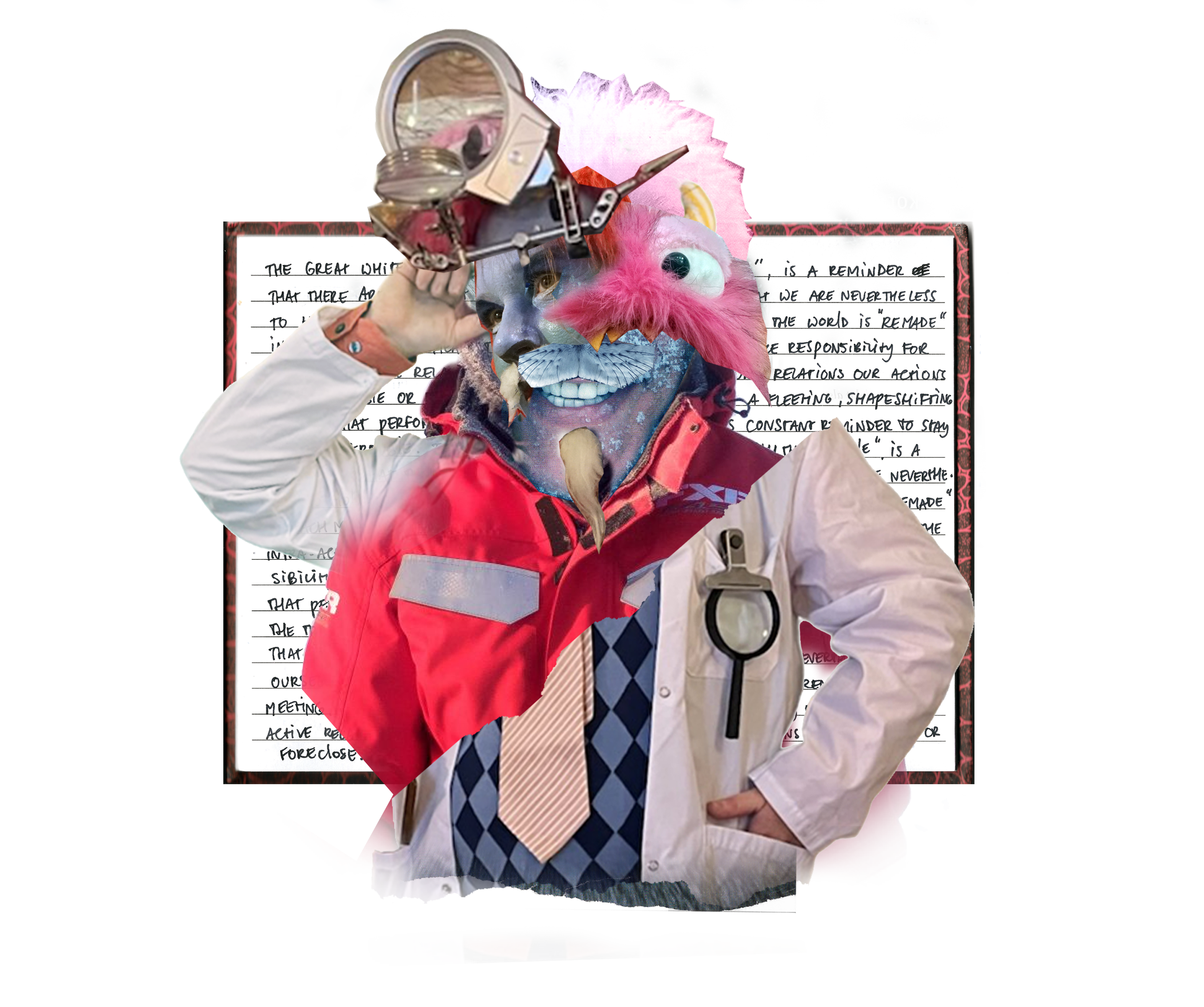Moves Towards Innocence

You have encountered a Great White Beast!
“It is precisely by denying culpability or assuming that one is not implicated in violent relations toward others, that one is outside them, that violence can be perpetuated. Violence, especially of the liberal varieties, is often most easily perpetrated in the spaces and places where its possibility is unequivocally denounced”[1].
The purpose of reconciliation is not to reinscribe settler virtues, nor to cater to comfortable narratives of innocence. Rather than merely "passing on" the message of recognition under the obscured positionality of "solidarity", it should be contemplated alongside the concept of implication[2]. and by re-inserting our bodies back into the political landscape.
The fallacy of imagining there is an easy road to reconciliation leading to superficial actions that alleviate settler guilt, but do nothing to repatriate land, or undo settler power, coloniality or privilege[3].
The challenge of conducting a testimonial reading, is that it requires us to face the "Great White Beasts" of our own actions and identities. A necessary discomfort before we can contemplate the full implications of acting as allies.[4].
- ↑ Berlant in Rothberg, M. (2019 p.49) The implicated subject. Stanford University Press.
- ↑ Grundy, M., Jiang, J., & Niiya, M. (2019). Solidarity as a settler move to innocence. Race in the Americas
- ↑ Tuck, E., & Yang, K. W. (2012). Decolonization is not a metaphor. Decolonization: Indigeneity, education & society, 1(1), 1-40
- ↑ Rothberg, M. (2019 p.87) The implicated subject. Stanford University Press.
